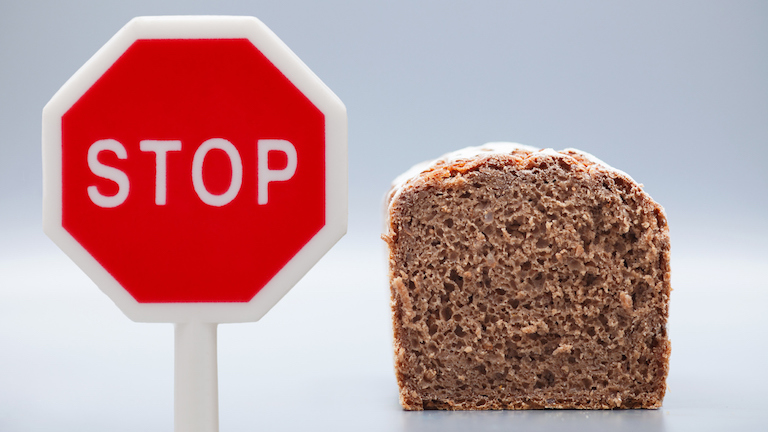Google carb blocker and a dizzying number of options come up. But what exactly is a carb blocker and more importantly, does it work as a proven way to reduce the effects of eating carbs? Anna Magee reports
The idea of taking a pill or powder that can negate the effects of carbs on your body is a seductive one. Now, carb blockers have become a key trend in healthy eating for 2018. But what do they actually do? How do you know if you need one? And most importantly, how do you know if the one you are taking has been proven to work.
What do carb blockers do?
Carb blockers claim to reduce the amount of glucose and insulin spikes your body experiences after eating foods high in refined carbohydrates. These could be anything from rice, pasta and bread to pizza, popcorn, fizzy drinks, sugary cereals, chocolates, sweets, pudding – you get the idea.
Here’s why this matters if you’re watching your weight
Carbohydrate foods all break down into glucose in the blood and refined carbs like bread and pasta and sugar can lead to excess insulin as they cause sharp spikes in blood sugar that signal the body to make more insulin to process it. This can not only lead to a subsequent sugar crash not long after that results in more sugar cravings and a post-eating slump, it also creates an insulin spike in the body.
And here’s why that really matters…
Insulin is the hormone made in our pancreas that helps the body move sugars from food into the cells of our bodies. It transports glucose first to the liver and then to the muscles where it’s stored as glycogen to use as energy. If there’s any leftover, which there usually is, it’ll take it to the body fat cells and store it there and studies show, it may be more likely to be stored around the middle.
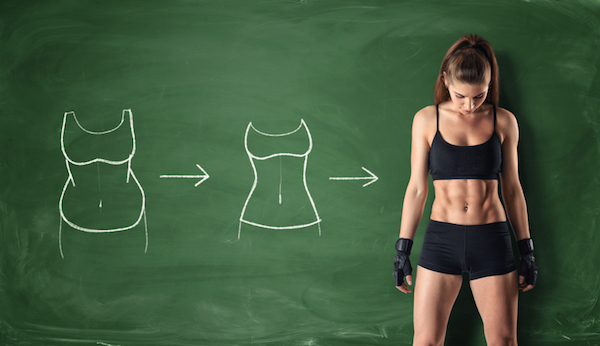
Taking a carb blocker before a meal high in refined carbohydrates or high GI foods could help lessen the glucose and insulin spikes resulting from it. Of course, this is not a license to eat donuts all day, as carb blockers don’t completely negate the effects of carbohydrates on your body, they simply lessen their effects.
‘The intake of high GI foods makes your post-meal blood sugar level go up very quickly,’ explains Dr Theodora Mantzourani, a London based GP and specialist in endocrinology and diabetes with a special interest in weight management.
‘A natural compensation mechanism of your body is the release of the hormone insulin. This enables the decrease of blood glucose levels. The higher the glucose spike, the more rapid the insulin reaction.
‘With an insulin release,’ she continues, ‘blood sugar levels go down again. As the insulin has been rapidly released, blood sugar levels also drop fast and low. This is where post-meal slumps and the cravings for more sugar and carb heavy meals occur’.
So, if you’re following a healthy diet but feel daunted by how difficult that can be because its hard to avoid the occasional high carbohydrate treat (that arabiata pasta dish that’s your partner’s specialty or your BFF’s birthday cake) without being a complete food bore, a carb blocker could help slow the release of glucose into the blood, requiring less insulin.
Here are some of the potential benefits:
Weight loss
Choose the right carb blocker and it could significantly reduce the amount of carbs your body absorbs from food (see below). That could mean you store less fat from the food you’re eating.
Less post-meal slump
When you eat foods with a high GI, your blood sugar is spiked and the increased glucose in your blood can lead to a quick crash after eating. By slowing this process, you could experience less post-eating sluggishness.
Fewer sugar cravings
Ever find the more sugar and carbs you eat, the more you want? Refined carbohydrates and those with a high GI not only spike your blood sugar dramatically, they lead to a quick subsequent fall in your blood sugar that can often result in making you feel hungrier than you were before you ate anything. It’s why you find sugar and carb addicts are the ones most likely to whine: ‘I can’t control my appetite’!
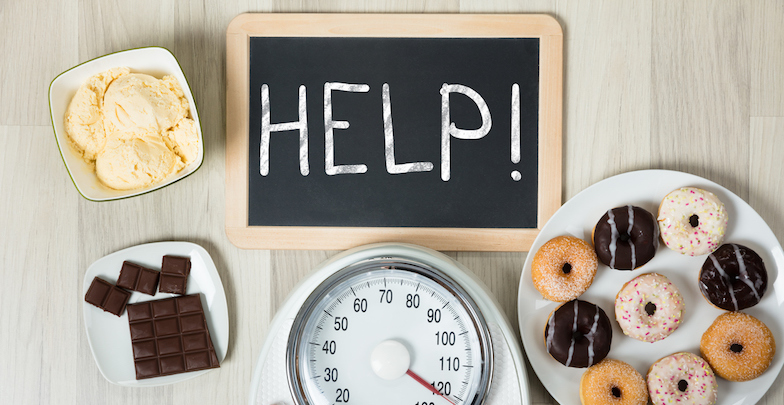
How do I know if I am eating high Glycaemic Index (GI) foods?
The glycemic index (GI) is a value assigned to foods based on how slowly or how quickly those foods cause increases in blood glucose levels. You can find a good GI list here or search for a food you’re looking for here. The GI goes from 0 to 100 with pure glucose being 100 so the closer the food’s GI is to 100 the more it will spike your blood sugar.
Here’s a general rule:
Low GI = <55 Examples include dark rye or wholegrain bread, brown rice and quinoa as well as things such as unprocessed fats and meats.
Medium GI = 56-69 Examples include muesli, Special K, potato chips
High GI = 70 and above Examples include, most cakes, chocolate, sweets and biscuits, fizzy drinks, boiled white potatoes, pizza, puffed wheat cereal and (sorry!) instant oatmeal
What happens when I eats lots of high GI foods?
While a low GI diet generally has been found to associated with weight loss – especially around the middle – in repeated clinical trials, a high GI diet comes with some well-documented dangers.
Well first, you could get fat.
‘Continuous consumption of high GI foods results in repetitive glucose and insulin spikes,’ says Kate Marczak, a scientist with a special interest in carb blockers. ‘With consistently elevated insulin levels, fat cannot be released from fat tissue as a back up source of energy when glucose levels drop, which means it stores the fat and the energy source needs to be delivered from outside the body in the form of carbs. So, the cycle continues – more carbohydrate cravings, more spikes and drops.’
You may have a higher risk of Type 2 diabetes
‘Consistently elevated glucose levels not only prevent the release of fat from fat tissue, it also contributes to insulin resistance which increases your risk of type 2 diabetes,’ asserts Marczak. ‘With tissues being insensitive to insulin, the pancreas keeps over-producing it, which leads to its exhaustion and eventually perhaps type 2 diabetes.’
Your skin might age faster
When you eat sugar and high carb foods, your body has to make substances called Advanced Glycation End products to deal with the sugar onslaught. Shortened (aptly) to AGEs, these increase oxidative stress in the body increasing the likelihood of ageing.
Scientists have observed the effects of AGEs most notably on the skin. ‘Collagen is particularly susceptible to AGEs formation and can increase susceptibility to ageing while a tightly controlled, low GI diet may reduce collagen AGEs and slow down skin ageing,’ says Dr Mantzourani.
Get your carbohydrates from whole foods, especially vegetables and fruit and make sure your meals contain protein such as lean meat, fish, eggs or pulses with some fat such as avocado, nuts, seeds, olive oils and olives as this combination can slow the release of glucose into the blood, requiring less insulin.
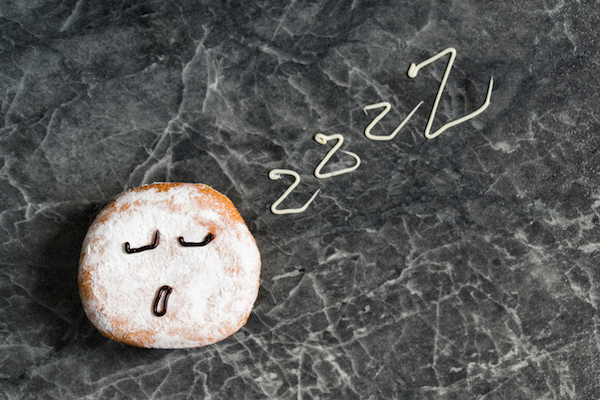
For the times when you don’t do this, the right carb blocker could help.
How do I choose a carb blocker?
Look for a carb blocker with good scientific evidence behind it and containing concentrated ingredients that have been shown to work.
The majority of carb blockers out there contain single ingredients that have carb-blocking effects such as white bean or green coffee. That means they affect only one stage of the carbohydrate digestion process which actually has three stages (see below).
The carb blocker proven by science
Developed by Polish scientists and launched this year in the UK, Tribitor is a powder taken in water 15 minutes before consumption of high GI foods such as fizzy drinks, bread, sweets, pasta and white rice.
‘It’s a drinking powder that helps inhibit the digestion of carbohydrates after they have been consumed,’ says Kate Marczak, who is the lead scientist on the trials of Tribitor.
‘Most of the carb blockers on the market influence only one stage of the carbohydrate digestion process,’ Marczak continues. ‘Tribitor’s action is more complex and inhibits all three stages of the absorption process your body goes through each time you eat a carb: digestion from starch to sugar, then conversion from sugar to glucose and finally glucose absorption in the intestinal tract’, she explains. It contains three of the most proven carb-blocking ingredients and it has had actual scientific trials show its effectiveness.
In the first phase of one of these trials on 120 participants, Tribitor was shown to reduce glucose spikes by 45 per cent and insulin spikes by 38 per cent. In the second phase of the trial on 40 participants an average 23 per cent decrease was observed in GI in the foods being eaten by participants such as white rice and white bread, reducing their GI from high to moderate.

Basically, that means if you want to eat the odd sweet treat or high GI carb meal, taking this could reduce your chances of the food ending up on your hips, your tummy, your waist…
How do I know a carb blocker works?
‘Nutritional supplements are loosely regulated and manufacturer’s claims are usually made for isolated ingredients and not for the supplement as a whole’, says Dr Mantzourani.
‘Carb blockers on the market claim to work based on evidence regarding generic ingredients such as white kidney bean extract.
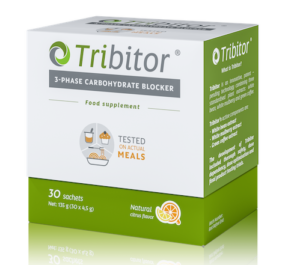
‘In contrast, Tribitor [left] has undergone robust animal and human trials as a whole supplement in the same manner companies test drugs before making them available to the public, making it unusual in the supplement market.
An additional advantage is that the amount of active ingredients in Tribitor are defined, controlled and confirmed in every batch – so you can trust you’re getting a product that is both effective and safe.
What’s in it?
Tribitor contains three active ingredients that inhibit both the digestion and absorption of carbohydrates. These are white bean extract, which inhibit the digestion of starch into sugar, white mulberry which reduces the digestion of sugar and green coffee, which inhibits the intestinal absorption of glucose.
These active substances work by reducing the activity of enzymes that enable sugar and carbs to break down into glucose.
And if like us, you’re wondering where those unabsorbed carbs go, Kate Marczak explains: ‘The unabsorbed carbs are poo-ed out,’ she says.
Do remember though: ‘some amount of carbs consumed would still be absorbed as Tribitor inhibits but doesn’t block the carbohydrate absorption process entirely.’
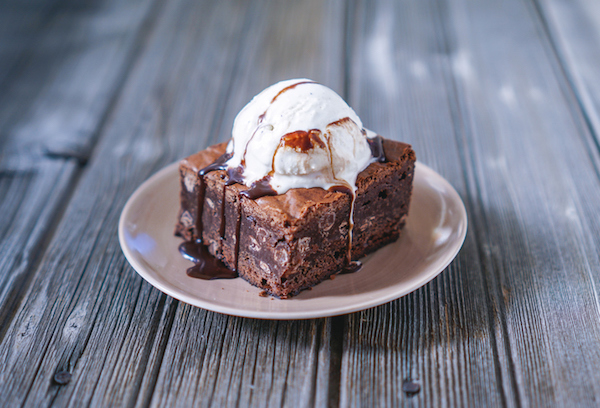
So, does it work?
You’ve seen the results of the scientific trials but what about the anecdotal evidence?
According to Dr Mantzourani, her patients who took Tribitor for at least three months saw a reduced waist circumference and reduced sweet cravings.
‘Both effects make sense as low GI diets which is what Tribitor translates into have been shown in the medical literature to promote abdominal fat loss and to reduced sugar cravings.
What about the not-so-scientific evidence from the Healthista team?
Well, first of all, we’re happy with the taste. It’s not sweet, mixes well and has a slightly citrusy flavour. Personally, I am convinced having it before lunch stopped me craving my routine two squares of dark chocolate at 3pm every afternoon – something few things have ever done.
Meanwhile, our digital director Yanar says: ‘I liked that it was mild, not too sweet and it went down really easily. I ate brown rice and a mix of different dahls and potatoes for lunch and found myself feeling full for longer between that and dinner and needing less to satisfy me.’
Our video producer Will, said: ‘I had a microwaved rice meal and would always be tired and yawning after it but I’m not having any of those effects now.’
Of course, they’re only short term effects, but they’re enough to have us hooked.
Tribitor costs £25 for 30 sachets and is available here. Use code: CURBTHECARBS at checkout to get 20% off the price
READ MORE:
20 healthy snack hacks these top influencers swear by
30 weight loss tips in 30 days #23 Drink green tea
Weight loss transformation diaries week 3: realising alcohol and weight odd don’t mix
Like this article? Sign up to our newsletter to get more articles like this delivered straight to your inbox.



